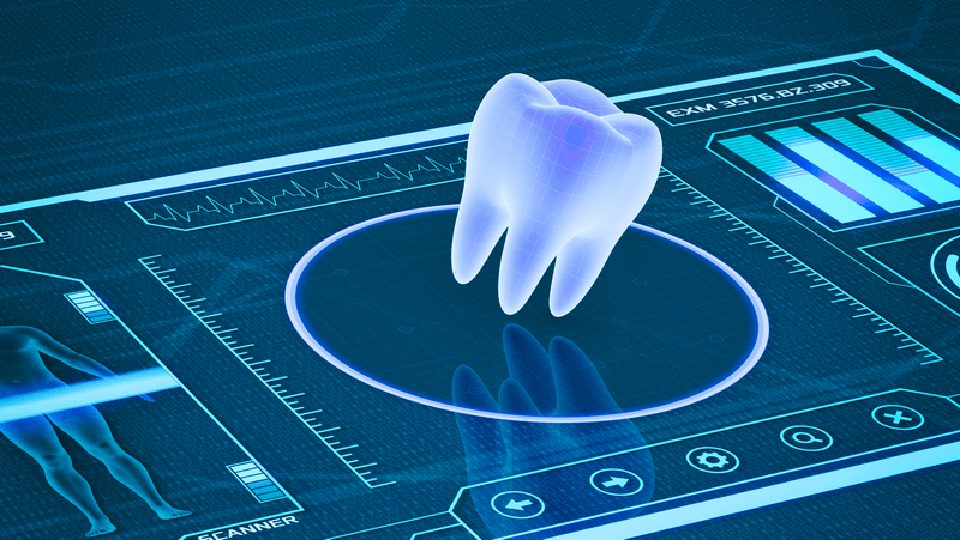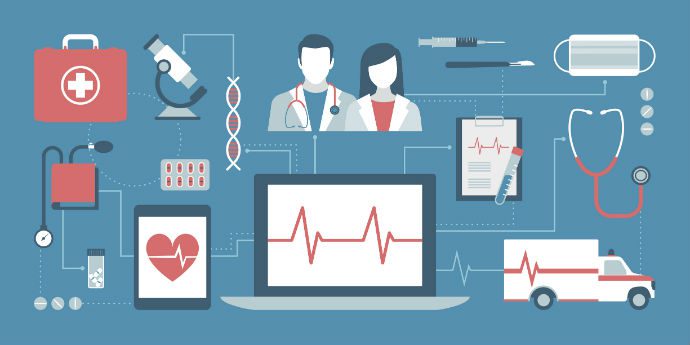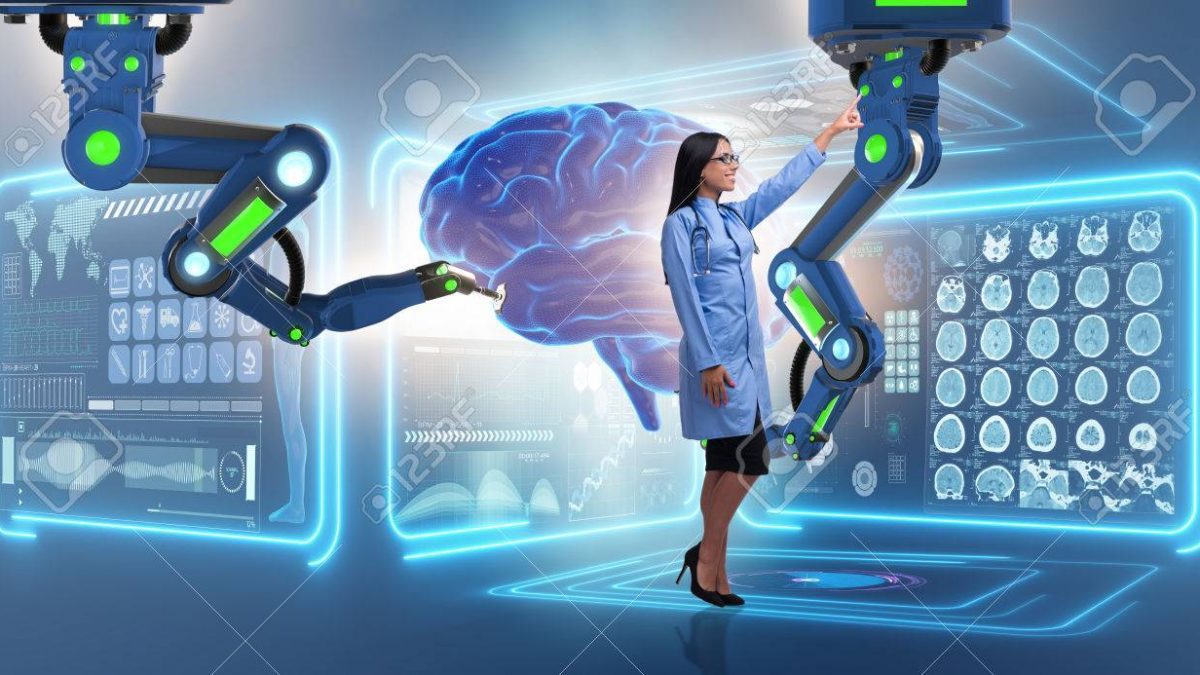
HOW EMERGING TECHNOLOGIES ARE TRANSFORMING THE HEALTHCARE INDUSTRY IN 2020
The unstoppable rise in technology has driven progressive changes in various sectors and industries. During the rapid transformation, a term with a vast scope surfaced the healthcare industry- the digital healthcare. The digital healthcare comprises of all those innovations made to strengthen, prosper, and add efficiency in the healthcare sector derived with cutting-edge technology. By the year 2020, the market is predicted to reach $206 billion. Moreover, the US national spending in this sector is expected to reach up to $5.7 trillion by 2026.
The Digital Transformation In Healthcare
The global healthcare sector was facing tremendous issues before the advancement of technology. Shortage of skilled resources, healthcare accessibility, manufacturing complications, regulatory changes, and unclear diagnoses. However, with the involvement of technology promising results begin to appear. Tech components like Artificial Intelligence, Big Data, Machine Learning, Internet-of-Things, Unified Communications, and PaaS/SaaS mark the era of digital transformation. So, let’s get into the depths of technology and its influences on online medical treatment, how it’s changing the eco-system and introducing new trends to follow. Get Web design and development services in Dubai.
Top Tech Trends That Revolutionize The Healthcare Industry
In the healthcare industry, new ways are surfacing to treat patients virtually and to perform expert diagnoses with appropriate results. The measures are increasing efficiency in detecting the cause and symptoms of a disease and how to treat with less complexity involved. If you ponder on the pros & cons of technology in medical sector, you would most likely find out the brighter sides. Due to the shortage of skilled specialists, bots and machinery have taken over the industry along with virtual accessibilities that are making the healthcare sector more successful and easy to approach.Moreover, there is a reduction in service cost as well. As the personalized medicine strategy is placed into action, it has improved the patient-care; hence, providing convenience and affordability to patients. The latest advancements include:
- Individual Treatment Plans
- Virtual Screening
- Remote Patient Monitoring
- Early Disease Detection
Internet of Medical Things (IoMT)
When the excellence of the Internet of Things gets integrated into the healthcare sector, the benefits accelerated magnificently. According to the reports, by the year 2023, the wearable device market is about to grow up to $27 million and in the year 2020, the IoMT devices will be around 20 to 30 or more.
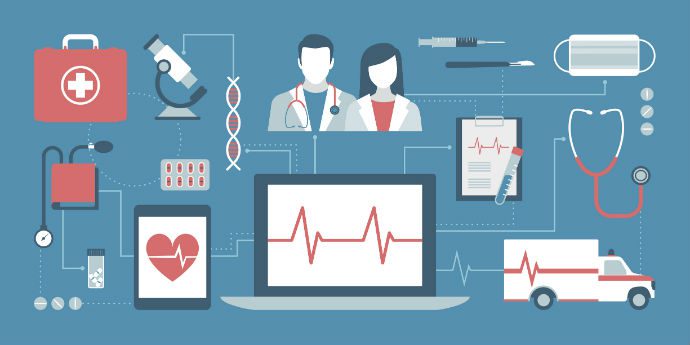
ECGM Smart beds, EKG monitors and connected inhalers are among the most commonly used devices. Moreover, IoMT enables professionals to pay attention to finding prevention methods. It is facilitating patients as well who can get the healthcare updates whenever they want instead of wasting time in the waiting area just to get their check-up done once in the blue moon. The healthcare departments are beginning to rely on many wearable devices to get the real-time feedback and analysis.
Telemedicine
Telemedicine is the practice of providing patient care remotely. In the year 2020, the trend is expected to be adopted greatly. It has turned out to be the driving force to form a digitalized healthcare sector. Providing medical aid to rural areas and regions with no accessibility has been a turning point in history. The resources include healthcare apps that connect the people with the professionals. Most of the checkups are carried online and visits are scheduled that ensures to build a healthy environment. However, measures are being taken to ensure cybersecurity to eliminate the hurdles in executing the healthcare operations.
The Rise Big Data Integration
Data related to Medical research is a vital part of the development of the healthcare sector. Where data-driven medicine is a promising trend the study of Datavant shows an annual generation of 4 trillion gigabytes of data. With the integration of technological components the generation and accumulation of data has eliminated many loopholes.
- It Has Lowered The Medication Error Rate
- Created Better Illness Preventive Plans
- Improved The Long-Term Patient Care
- Prevented Patients From Readmission
- Reduced The Under-staffing And Made Process Time-Efficient
That’s how Big Data has facilitated the sector making it convenient and efficient to pull fast analysis and get reliable results. It has enabled the hospitals to get on the treatment plan with an effective approach.
Artificial Intelligence The Backbone Of Digital Transformation
It’s hard to deny the fact that the integration of AI has completely changed the face of the healthcare sector.From providing the most innovative disease diagnoses to monitoring the epidemic outbreaks, increasing the operational efficiency to creating effective treatment plans, AI and Machine learning are assisting the sector. By the year 2030, the AI-powered personalized medicine system is expected to set new standards in the industry making it feasible and efficient to get patient care.
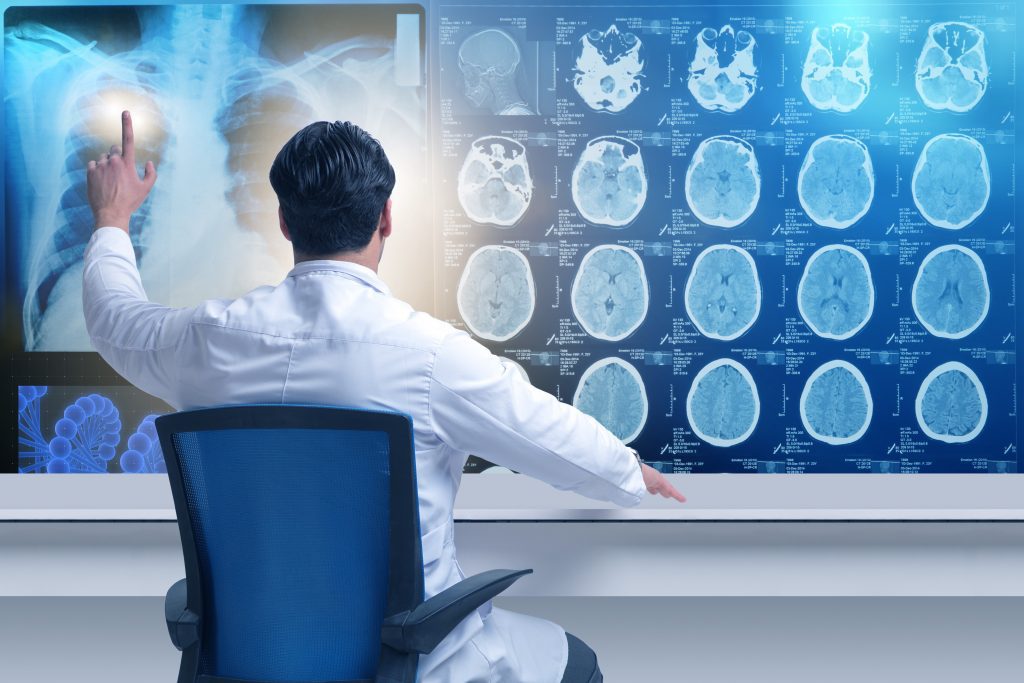
Apart from this, an image classification system is making history as well with its most accurate results and detection. It is brilliantly replacing doctors with advanced machinery; thus, providing better opportunities to doctors to practice their skills. The contribution to AI is vast and uncountable. It is assisting the ultrasound department as well as giving clarity and flawless scanning to find the real cause of the problem breathing inside the human body.
The Cloud Integration
With the use of cloud processing and computing, storing and backing up data has become easier and much more efficient. In addition to that, it has created a progressive bridge to bring the patients and doctors closer. The text-based and video-based conversations have made it simpler to get an expert’s opinion and evaluation. On your health condition. Many doctors around the globe are even offering virtual consultation to their patients eliminating the time spent in meeting the patients in person. The cloud ecosystem ensures to provide integrated security with the use of blockchain. The patient’s reports, credentials and every single detail get secured and protected fully. No data loss or invasion of privacy is possible.
Blockchain- Ensuing A secured Future Of The Sector
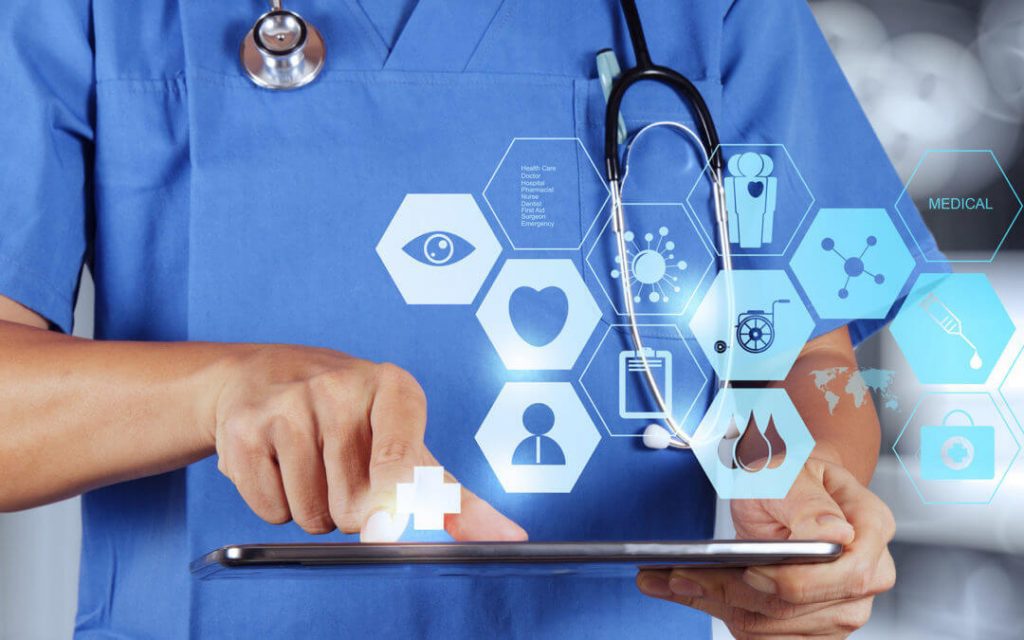
For the problems regarding integrity, security, accessibility, and portability, Blockchain is the best tech-solution. The risk of losing the most important medical record is unimaginable. However, with the use of blockchain technology, the department gets rest assured to have secured integration. No matter to which part of the country your patients travels to you can always get the records gathered at a single place. In addition, that data can also be accessed and shared among many doctors at the same time.
Winding Down
The expansion in the healthcare sector and with the innovative use of technology, many brands, and companies are now preferring to invest in the industry. Seeking opportunities to prosper, the healthcare industry is in the limelight and is expected to expand and transform it the coming years.



